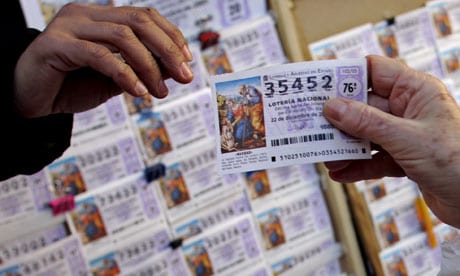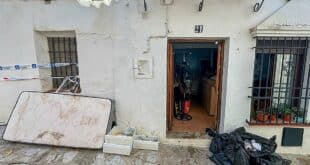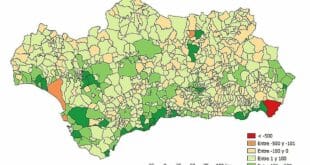Have you noticed that there is almost no bookies left in Spain? In areas with a large British population, there are a few betting shops, but these are very rare.
Horse-racing is more or less unknown (there is the ‘hippodromoThe only track in Spain is the one in Mijas. It was built for British riders, and has been closed for many years.
There are also two days of horse-racing on the beach in Sanlúcar, but that’s a tourist novelty.

If you talk to your Spanish friends about betting online (‘ten euros on Garnacho to take the next throw-in’), they’ll think you’ve lost the plot.
READ MORE
Every Spanish town has its state lottery sales-point, (‘Loterías y Apuestas del Estado’) – and that’s the difference.
Where betting exists in Spain it is mostly through buying a weekly lotto ticket. New statistics suggest that even this form of gambling is in decline – but a worrying trend for the Spanish is the way in which underage children are getting around the rules in order to bet online.
In the age range of 14-18 years, 20% of children say that they have played this game. Javier Padilla has published a report by the Spanish Ministry of Health on addiction. Several of the results are fascinating.
In the past year, 54% (Spaniards aged 15-64) gambled, a significant drop from 2020 when 64% did. Women gamble less often than men (51.5 % compared to 56%).
There is concern that youth are not following the law. 17.7% say they’ve placed bets personally, and this trend is increasing.
Online games of chance are popular among young people. They play video games but also wager on sports and dabble with crypto-currencies.
In terms of betting in-person, children imitate the older generation, limiting themselves to lotteries or bingo. British people have long recognised a psychological condition known as ‘compulsive gambling’. It exists in Spain too, of course, and bears the name ‘ludopatía’.
Both cultures know that compulsive gambling is easy to indulge in when you have easy internet access. This is why the statistics distinguish between ‘face-to-face’ betting and the online variety.
In the survey of 2020, 64% Spaniards confessed to having visited a casino or bought a ticket for a lotto from a human seller (i.e., face-toface). This number has now dropped to 53%.
The Spanish are almost completely unaware of online betting. In the past 12 months, only 2.7% of women have admitted to gambling in this manner.
Online betting has grown the most among 25-34 year-olds, while between 55-64 years-olds, only 2.5% (1 of 40) registered in the past year.
The lottery is the most popular gambling activity in Spain, with over 90% of the population participating. (This figure may be inflated by the “El Gordo”, a Christmas lottery that almost everyone participates in). About 31% of Spanish people play bingo or buy scratch cards.
Less than one in ten Spaniards bet on sports. A more relevant statistic may be how much people spend playing games of chance.
In Spain, almost everyone falls in the lowest bracket (6 to 30 euros per year). But 2% of the Spanish population admits that they spend more than 300 euros each year.
Did you Know?
In Spain, big lottery winnings are taxed. The Spanish tax authority (the ‘agencia tributaria‘) takes an additional cut from any gambling or lottery win over a certain limit. As you increase your winnings, the tax rate will rise. In reality, the tax is usually a fifth of winnings.
And here’s the worst part – the Spanish taxman doesn’t wait for you to write him a cheque. Tax is calculated before winnings are paid out! It seems unfair, doesn’t?
 Costa News Spain Breaking News | English News in Spain.
Costa News Spain Breaking News | English News in Spain.







